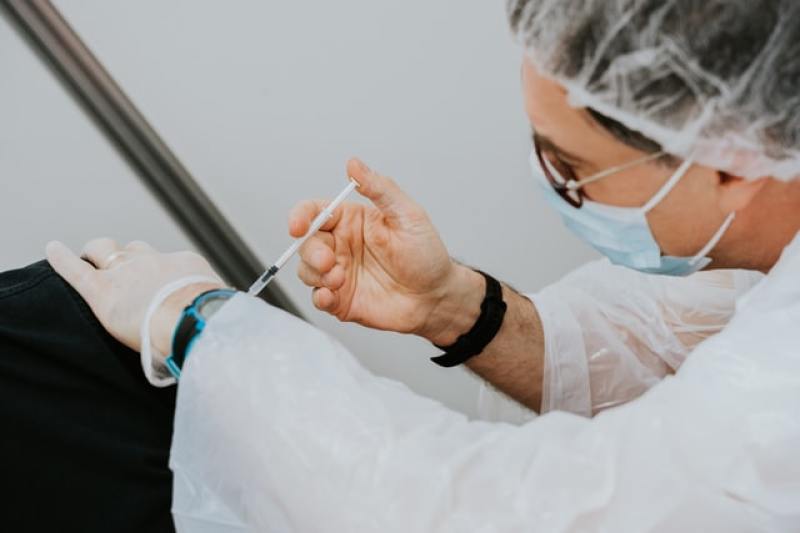
A study published in the journal Eurosurveillance raises concerns about the validity of "vaccine-generated herd immunity."
On the 30th of September, a study published in Eurosurveillance revealed that COVID transmitted quickly from one fully vaccinated patient to other fully vaccinated personnel, patients, and close relatives, even with a 96% vaccination rate and the use of full personal protective equipment (PPE). Five people passed away, while nine others were in critical condition.
Researchers cite an Israeli medical center's COVID outbreak as an example of how the virus may spread quickly among hospital personnel, despite vaccination rates of 96%, the use of N-95 surgical masks by patients, and complete use of personal protective equipment.
All exposed patients and personnel were infected at an estimated rate of 10.6 percent (16/151) for the staff and 23.7 percent (23/97) for the patients. This was in a population with a 96.2 percent vaccination rate (238 vaccinated/248 exposed people).
A number of transmissions, according to the study, are likely to have happened between two people who were both donning surgical masks and, in one case, who were both wearing complete personal protective equipment (PPE), which included an "N-95 mask, a face shield, gown, and gloves."
Out of the 42 patients identified during the outbreak, 38 had received two doses of the Comirnaty vaccine developed by Pfizer and BioNTech, one had gotten just one dose, and three had not been vaccinated at all.
Twenty-three patients and nineteen members of the staff were infected. Nonetheless, it didn't take long for the employees to recuperate.
The vaccine-induced illness, on the other hand, led to the death of eight people; six got critically sick, and five of the severely ill died. The COVID infection was minimal in the two unvaccinated patients that were monitored.
The outbreak was traced back to a 70-year-old haemodialysis patient who was hospitalized with a fever and cough and put in a room with three other patients.
On the day of admission, the patient was not tested for SARS-CoV-2 because his or her symptoms were misinterpreted for a potential bloodstream infection that was worsening congestive heart failure.
Scientists used phylogenetic analyses of the SARS-CoV-2 genome sequences from 12 cases in the outbreak, including personnel and patients from Wards A, B and C and dialysis departments, to pinpoint the outbreak's origin.
Except for one, all had the Delta variant and were linked to the same outbreak epidemiologically and phylogenetically. Three people on the team were infected, but they were not included in the outbreak's scope.
Doctor Brian Hooker, Ph.D., P.E., chief scientific officer of the Children's Health Defense and a professor of biology at Simpson University, stated, "This is a very interesting paper and it is scientifically very sound."
"The breakthrough rate of 96.2% of the vaccinated population shows that in this instance, the vaccine was virtually useless in preventing transmission," Hooker added. "It should also be noted the two reported cases among unvaccinated patients were mild, whereas six of the vaccinated patients died."
As for the study's authors, they came at the following conclusion:
"This communication ... challenges the assumption that high universal vaccination rates will lead to herd immunity and prevent COVID-19 outbreaks ... In the outbreak described here, 96.2% of the exposed population was vaccinated. Infection advanced rapidly (many cases became symptomatic within 2 days of exposure), and viral load was high."

























